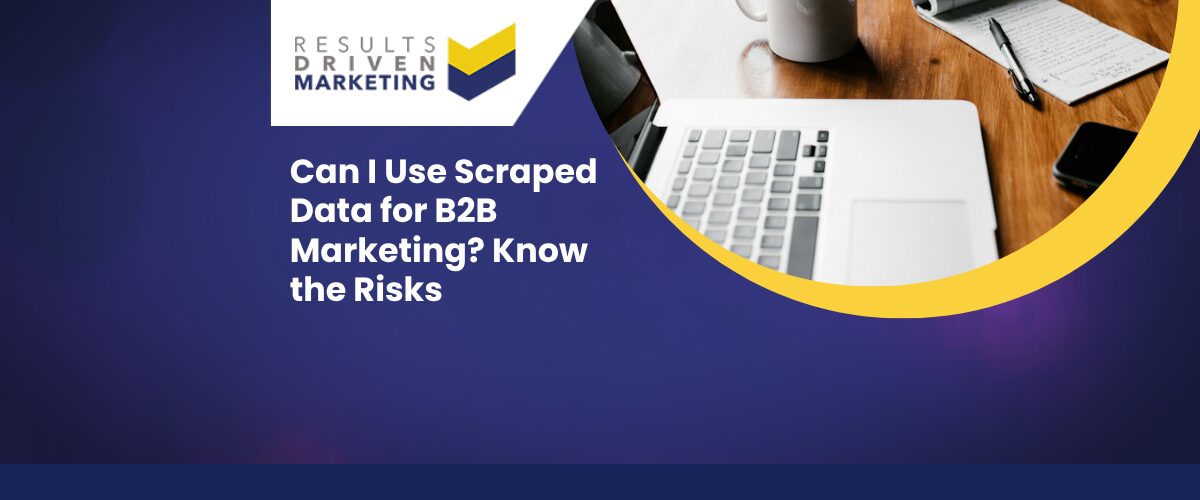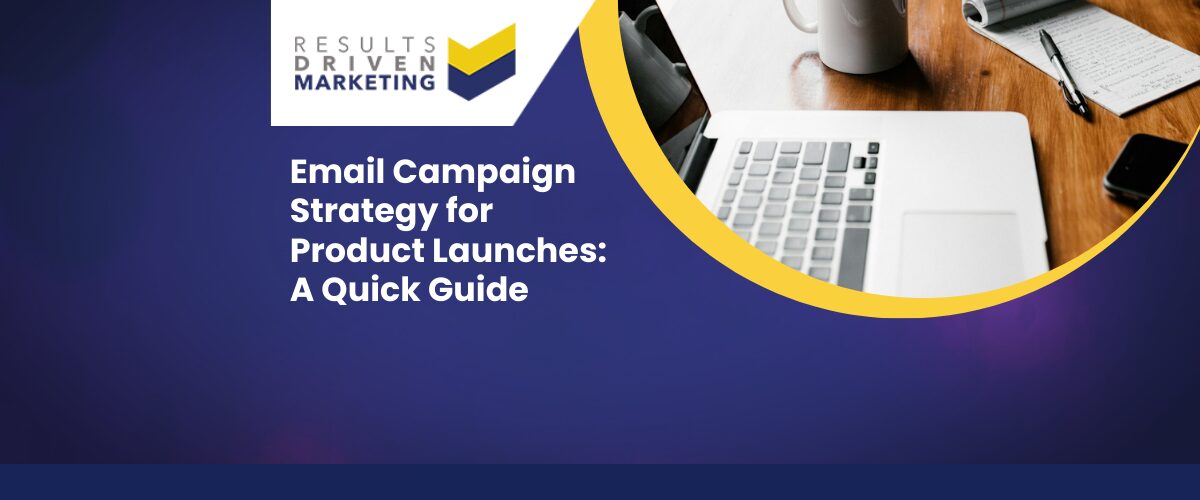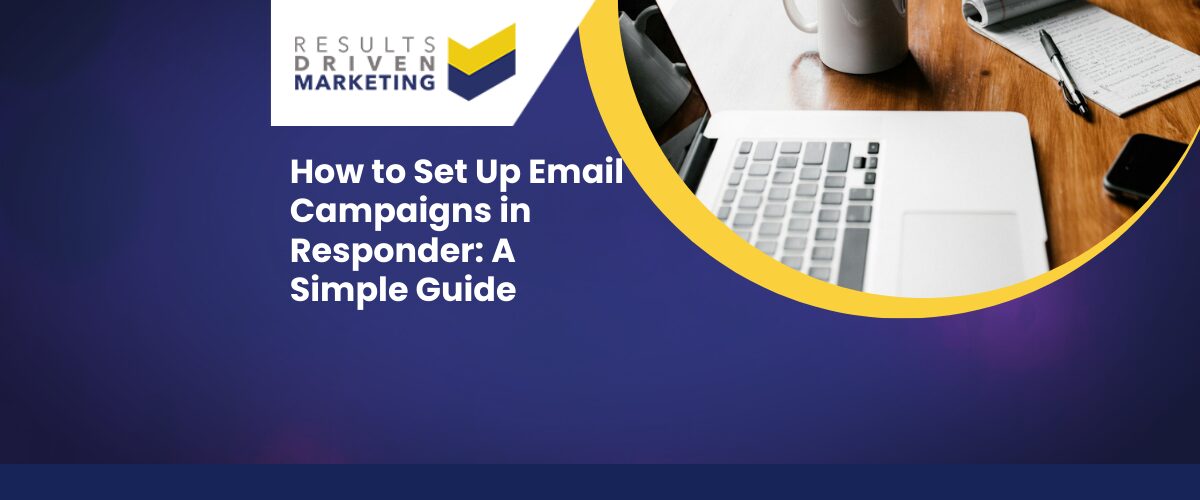
Can I Use Scraped Data for B2B Marketing? Know the Risks
Can I use scraped data for B2B marketing? It’s a question more UK businesses are asking — especially when sales teams are under pressure to generate leads fast. After all, the internet is full of contact information. Surely scraping a few names, job titles, and emails from public sources is fair game?
Not quite.
While it might seem like a quick win, scraping data comes with major legal, ethical, and practical risks. From GDPR and PECR compliance to platform bans and poor email performance, what starts as a shortcut can quickly become a setback — or worse, a liability.
In this guide, we’ll break down what scraped data is, how UK privacy laws treat it, and why it rarely pays off in real-world B2B marketing. You’ll also learn safer, smarter ways to reach your ideal customers using accurate, compliant data that delivers results — without risking your reputation.
Table of contents:
What Is Scraped Data — and Why Businesses Use It
Scraped data refers to contact information pulled from websites, directories, social platforms, or public databases using automated tools or manual copy-pasting. It’s often collected without the knowledge or consent of the person or business being scraped.
Definition and Common Sources
Scraped data typically includes:
-
Names and job titles
-
Company names and websites
-
Email addresses and phone numbers
-
LinkedIn profiles or directory listings
Common sources include:
-
Company websites
-
Online directories (like Yell or business databases)
-
LinkedIn or social media profiles
-
Event attendee lists or trade directories
Why It Seems Like a Shortcut
For many small teams, scraping feels like a low-cost lead gen hack:
-
No upfront payment or contracts
-
Quick access to large volumes of contact details
-
Easy to plug into email tools for cold outreach
But just because it’s easy to do, doesn’t mean it’s safe — or smart.
Is Scraping Data Legal in the UK?
Scraping data might feel like you’re just collecting public information — but that doesn’t make it legal to use for B2B marketing. UK privacy law draws a clear line between what’s visible and what’s permissible.
GDPR and the Legal Use of Personal Data
Under GDPR, personal data includes any information that can identify an individual — such as names, email addresses, or job titles tied to a specific person.
Even if that data is publicly available, you still need:
-
A lawful basis for processing it (usually legitimate interest)
-
A way to demonstrate that the individual could reasonably expect to be contacted
-
A process for handling opt-outs, complaints, and data removal requests
In short: if you can’t explain how you got the data, why you’re using it, and what rights the individual has — you’re likely in breach.
PECR and Marketing Rules
While GDPR governs how data is handled, PECR (Privacy and Electronic Communications Regulations) governs how you contact people — particularly via email, phone, and SMS.
PECR requires:
-
Consent for emails to sole traders or partnerships
-
A clear opt-out in every message
-
Honest sender identification and contact details
Scraped data usually fails on all fronts — especially when the data owner never opted in or showed interest in your business.
Platform Terms of Use
Most platforms — like LinkedIn, Facebook, and online directories — explicitly ban scraping in their terms of service.
Using automation tools or browser extensions to extract data may lead to:
-
Account bans
-
Legal action for violating terms
-
Blacklisting from email platforms if contacts report your outreach as spam
Just because the data is visible doesn’t mean it’s fair game — and the risks are real.
Why Scraped Data Often Backfires
Scraped data may seem like a fast way to build a contact list, but in practice, it often does more harm than good. From poor response rates to legal headaches, here’s why it rarely delivers real value.
Poor Data Quality and Accuracy
Scraped lists are usually:
-
Outdated — job roles, emails, and company details change frequently
-
Incomplete — missing key fields like phone numbers, sectors, or valid contact names
-
Unverified — you have no idea if the contact still works there — or ever did
Without proper targeting or quality control, campaigns sent to scraped lists often fall flat.
Higher Complaint and Bounce Rates
Sending to scraped contacts tends to trigger:
-
Spam complaints — because the contact never opted in and doesn’t know who you are
-
Hard bounces — because the email address is old or invalid
-
Low engagement — which hurts your sender reputation and deliverability
Email platforms and ISPs may throttle or block your emails, especially if these issues persist.
Legal and Reputational Risks
Using scraped data for marketing can violate GDPR, PECR, and platform rules — and the consequences are serious:
-
ICO complaints or investigations
-
Fines for non-compliant data use
-
Damage to your brand’s reputation and credibility
-
Permanent blacklisting by email platforms
In short: using scraped data might feel like a shortcut, but it often leads to dead ends.
Safer, Smarter Alternatives to Scraping
If you want reliable results from your B2B marketing — without risking your sender reputation or breaching regulations — there are better ways to source data.
Use a Trusted UK Data Supplier
Working with a reputable B2B data provider ensures your lists are:
-
GDPR-aware and PECR-compliant
-
CTPS-checked to avoid calling registered numbers
-
Filtered by job role, industry, location, company size, and more
-
Regularly updated to maintain high accuracy
This means you’re contacting the right people, at the right time, for the right reason.
Focus on Legitimate Interest and Clear Opt-Outs
Even without prior consent, you can legally reach out under legitimate interest — if:
-
Your offer is relevant to the recipient’s role or business
-
You clearly explain who you are and why you’re contacting them
-
You include a simple way to opt out
This approach respects privacy while still driving results.
Clean Data = Better Results
Accurate, segmented data helps you:
-
Avoid bouncebacks and spam traps
-
Send personalised, targeted messages
-
Improve open and reply rates
-
Build trust from the first touch
With the right data, even your first cold email can spark meaningful conversations — not complaints.
Why Choose Results Driven Marketing
At Results Driven Marketing, we understand the pressure SMEs face to generate leads quickly — but we also know that shortcuts like scraping don’t pay off. That’s why we provide accurate, compliant, and targeted B2B data that gets real results.
Here’s what sets us apart:
-
700,000+ Monthly Updates
Our data is constantly refreshed from trusted UK sources, so you’re never working with outdated contacts. -
2,000+ Industry Sectors Covered
Whether you’re targeting manufacturers, financial services, or local trades, we’ve got it covered — with filters for job role, company size, geography, and more. -
GDPR and PECR Aware
Our data supports lawful B2B outreach under legitimate interest, with CTPS checks included as standard. -
Fast Turnaround and Expert Advice
Get your list within 24 hours — and speak to a real person for advice tailored to your goals.
We’re not here to push data. We’re here to help you get more from every campaign — without taking risky shortcuts.
Final Thoughts: Don’t Risk It — Scraping Isn’t Worth It
Can I use scraped data for B2B marketing? Technically, you might be able to — but that doesn’t mean you should. Between GDPR, PECR, poor data quality, and the risk of blacklisting or fines, it’s a gamble with more downsides than upside.
In reality, scraped data rarely delivers the results you need. It damages trust, wastes time, and undermines your brand.
The smart approach? Work with reliable, UK-based data providers who understand both compliance and commercial success. You’ll spend less time firefighting issues — and more time speaking to real prospects who actually want to hear from you.
Scraping might seem like a shortcut, but in B2B marketing, shortcuts tend to cost more in the long run.
Need Quality Data That Works — and Keeps You Compliant?
If you’re ready to stop guessing and start connecting with the right B2B decision-makers — safely and effectively — we’re here to help.
At Results Driven Marketing, we support UK SMEs with fast, accurate, and compliant data for cold email, telemarketing, and direct mail.
-
Free Targeting & Data Advice
Tell us who you want to reach and we’ll show you what’s possible — no obligation. -
Fast Delivery, Fully Compliant
Tailored B2B data lists delivered securely within 24 hours, ready for use under legitimate interest. -
Expert Support When You Need It
Speak directly to a real person — not a bot — and get honest advice for your outreach strategy.
📞 Call us on 0191 406 6399 or Contact Us to get started.
You can also buy email lists online — accurate, segmented, and built for results.
Results Driven Marketing
B2B Data Lists for Email, Telemarketing & Direct Mail
Serving UK SMEs | Cobalt Business Exchange, Newcastle
📞 0191 406 6399 | 🌐 rdmarketing.co.uk





